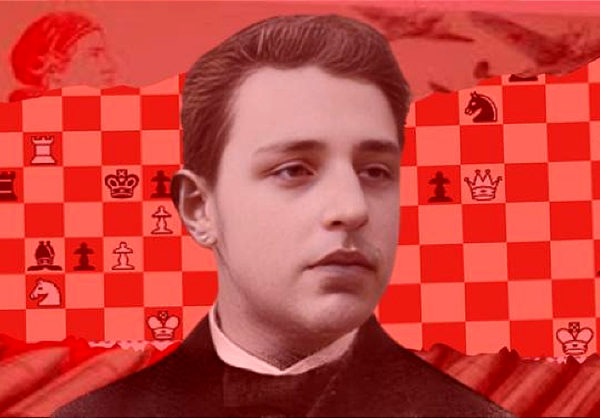James Cameron wants to put the Titanic debate to rest

Director James Cameron wants to put an end to a debate that has gone on since the movie first hit theaters, exactly 25 years ago today. Namely, could Rose have scooched over to make room for Jack on that floating hunk of wood, keeping him out of the freezing water and saving his life? Many fans have argued with zeal that both Jack and Rose could have plausibly fit on the door. Cameron disagreed, saying in that episode that "Jack has to die," and he has long dismissed the idea that the question is even up for debate. However, the director says he is hoping to close the door on the dispute for good, with a scientific approach.

Ada Lovelace’s skills with needlepoint helped her pioneering work in computing
Ada Lovelace, known as the first computer programmer, was born on Dec. 10, 1815, more than a century before digital electronic computers were developed. Lovelace has been hailed as a model for girls in science, technology, engineering and math. But Lovelace – properly Ada King, Countess of Lovelace after her marriage – drew on many different fields for her innovative work, including languages, music and needlecraft, in addition to mathematical logic. Lovelace drew on all of these and more when she wrote her computer program – which in reality was a set of instructions for a mechanical calculator, the so-called Analytical Engine designed by inventor Charles Babbage.

The ascent of Mont Blanc, in 1855
Mont Blanc in the Alps, near the border of France, Italy, and Switzerland, had an unparalleled impact on the Romantic imagination. Percy Shelley refashioned Burke’s notion of the sublime within this mountain’s vale; Mary Shelley used its “awful majesty” to stage the confrontation between Victor Frankenstein and his monster; Wordsworth registered disappointment during The Prelude, finding that the peak left “a soulless image on the eye”; and Byron “jeered at an Englishwoman, in the shadow of Mont Blanc, whom he overheard asking the members of her party whether they had ever seen anything so rural." During the early-to-mid-nineteenth century, the mountain’s “blanc” became polysemous: white but also blank, a page on which to record “peak experiences”.

Water thieves abound in dry California. Why are they so hard to catch?
It’s not easy enforcing water regulations in the West. Just ask the officials in California who have been trying for almost a decade to penalize a man who took water from the river system that feeds San Francisco and bottled it for sale to stores like Starbucks. It sounds like a tall tale, but it’s illustrative of just how hard it is to stop scofflaws from using water the rest of the state needs during a water crisis. In 2015, California’s state water agency received a series of complaints about water theft on a small tributary of the Tuolumne River, the source of the Hetch Hetchy reservoir that supplies most of San Francisco’s water. G. Scott Fahey, the owner of a water bottling company called Sugar Pine Spring Water, was siphoning water from the spring and loading it on trucks, they said.

It may be rude, but it's the oldest known carving of a narrative scene
The world’s oldest narrative scene, depicting humans and animals in a two-panel carving, has been discovered by archaeologists in Turkey, according to some new research that was recently published in the peer-reviewed journal Antiquity. The paper describes an 11,000-year-old complex at Sayburç, with several residential buildings and a communal structure. The engraving was found on benches that line the walls in a communal area. Both panels portray a person facing dangerous animals—the flat relief on the left shows a squatting male figure holding a rattle or a snake against a bull, while the right shows a male figure in high relief holding its phallus as leopards approach from both sides.

The real story behind the game Monopoly
The names of the streets on the classic Monopoly board, from Baltic Avenue to Park Place, were all taken from in or around Atlantic City. A board with those names was sold to Parker Brothers by Charles Darrow, who claimed to have invented the game in his basement. But the original idea came from Lizzie Magie, born Elizabeth Phillips, a woman of many talents and trades. She worked as a stenographer, a typist, and a news reporter; she wrote poems and short stories; she was a comedian, an actress, and also a feminist. And the board game she developed was originally called The Landlord’s Game.

All of US history occurred during a single orbit of Pluto
All of US history has occurred within a single Pluto orbit pic.twitter.com/AawNrSd7Iz
— Amazing Maps (@amazingmap) November 24, 2022



